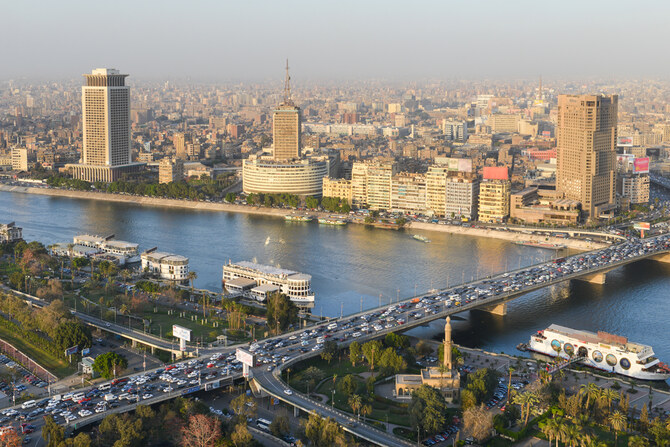Egypt will potentially have access to around $1.2 billion from the International Monetary Fund, following a staff-level agreement under the Extended Fund Facility.
The agreement, which is subject to approval by the IMF’s Executive Board, aims to provide crucial financial support as Egypt navigates a challenging economic landscape.
The funding is part of Egypt’s broader efforts to stabilize its economy amidst high inflation and lower-than-expected revenues, including a decline in Suez Canal earnings.
“The Egyptian authorities have continued to implement key policies to preserve macroeconomic stability, despite ongoing regional tensions that are causing a sharp decline in Suez Canal receipts,” said Ivanna Vladkova Hollar, who led the IMF mission to Egypt.
The country incurred losses of $8 billion due to a sharp decline in Suez Canal revenues, as revealed by Egyptian Foreign Minister Badr Abdelatty last month.
The IMF and Egyptian authorities have agreed to recalibrate the country’s fiscal consolidation path, creating fiscal space for critical social programs targeting vulnerable groups and the middle class, while ensuring long-term debt sustainability.
“Particular attention will be needed to contain fiscal risks stemming from state-owned enterprises in the energy sector, and to enforce the strict implementation of the public investment ceiling, which includes capital expenditures associated with public entities that operate outside the general government budget,” added Holler.
She praised Egypt’s plans to streamline and simplify its tax system but stressed that additional reforms are necessary to boost domestic revenue mobilization.
As part of the agreement, Egypt committed to increasing its tax-to-revenue ratio by 2 percent of gross domestic product over the next two years, focusing on eliminating exemptions rather than raising taxes.
“A comprehensive reform package is needed to ensure that Egypt rebuilds fiscal buffers to reduce debt vulnerabilities, and generates additional space to increase social spending, especially in health, education and social protection,” she said.
Looking ahead, Egypt’s reform priorities involve boosting domestic revenues, improving the business environment, accelerating divestment, leveling the playing field, and enhancing governance and transparency.
“While Egypt faces headwinds from the difficult external environment, there was agreement that further efforts were needed to accelerate the divestment program. The authorities expressed commitment to redouble their efforts in this area, which is crucial to support private sector development and to reduce the high debt burden,” added Holler.
Earlier this month, Fitch Ratings downgraded Egypt’s economic growth forecast to 3.87 percent for the fiscal year 2024/25, down from 4.2 percent, citing disruptions in Suez Canal navigation.
The rating agency projected a recovery in the financial year 2025/26, with growth accelerating to 5.1 percent, up from an earlier estimate of 4.7 percent, contingent on normalizing Red Sea navigation and improved performance in the services sector amid easing geopolitical tensions.



